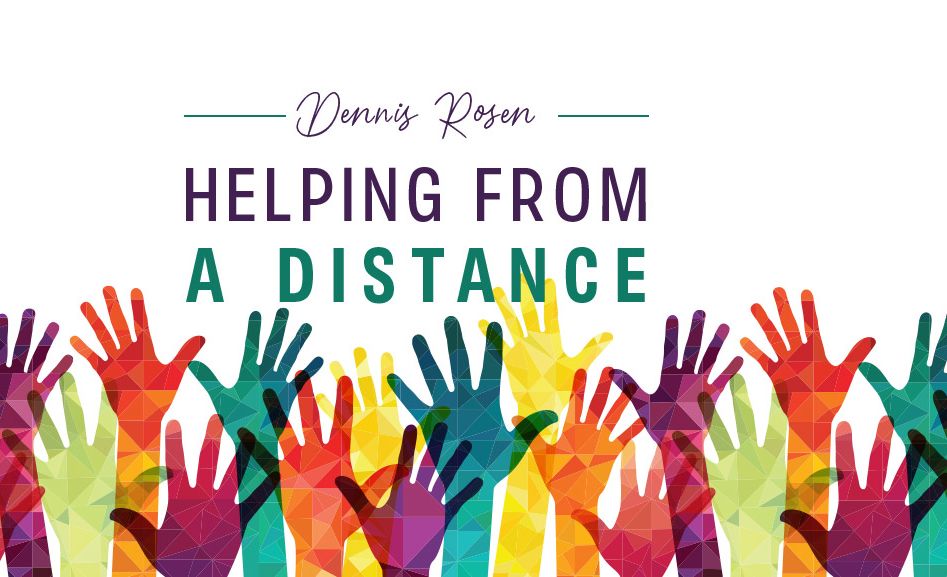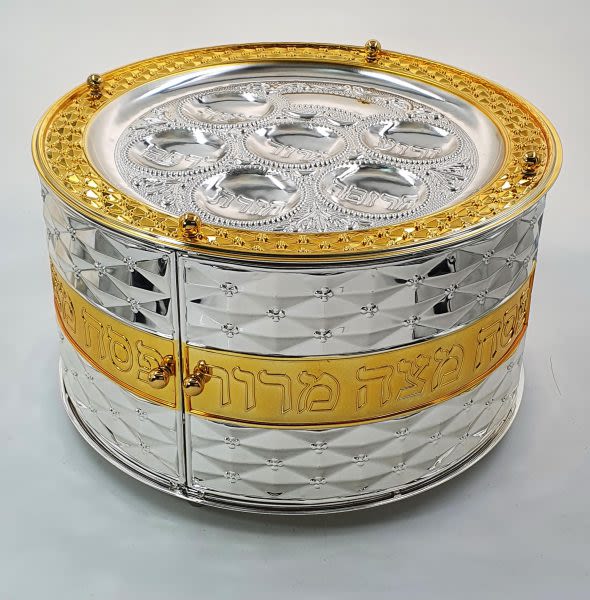
Who is Like Your People Israel?
Is there any other nation that is so concerned and so active in chessed? Rebbetzin Moscowitz, zt"l related two amazing true stories that show the lengths that Jews will go to to help their fellow.

Something that I see all the time and that always gives me great pleasure, is the endlessly creative ways which Klal Yisroel finds to do chessed (loving kindness) and to help each other.
Many – very many!! – are the times that I remarked to the Rav מי כעמך ישראל (“who is like Your people Israel?”). It really is true; there is no nation whose people are so concerned about and practice so much chessed as Klal Yisrael.
One memory that springs to mind immediately is something that happened over twenty years ago and relates to giving tzedakah (charity) – something that we as a nation are well-known for.
When my oldest daughter was a young girl, she was ill with chronic kidney disease, which after a few years culminated in her kidneys being removed and her needing a kidney transplant. She was based in one of England’s large teaching hospitals and whilst she was waiting for the transplant, she had regular dialysis treatment on one of the hospital’s dialysis machines. These machines cleansed her body of all the accumulated toxins, one of the main functions of the kidneys.
There was a very active Kidney Volunteers Association drawn from amongst the patients and their parents. At that time, they were collecting money to buy an extra dialysis machine for the unit. They held all sorts of events to raise money, apart from straight-forward solicitations on the hospital grounds (good old-fashioned shnorring in our language). As my daughter was a user of the dialysis machines, I felt very strongly that I also wanted to contribute to the fund, but on the day the volunteer went round the unit I only had £1 on me. I felt that this was a very meager donation (according to my standards). I decided to tell the volunteer collecting (who was the chairman of the Volunteers Association) that this was only part of my contribution, and that I would add more the next time we came in for dialysis.
As I handed him the money with words of apology on the tip of my tongue, he began to thank me profusely for my ”magnificent donation”. He went on for ten minutes what a wonderful gesture this was and how grateful he was. I was absolutely astounded at this! In total bewilderment I asked him if this was such a large donation, then what was the average donation. His reply was that on average people gave 10 pence; a ”nice donation” was 20 pence. No wonder then that £1 (10 times the average donation) was cause for such celebration and an outpouring of gratitude. I thought to myself מי כעמך ישראל – who can compare to Your people!
But even so, with all that I have seen, I was still caught by surprise a few weeks ago.
Unfortunately, in our position as a Rav and Rebbetzin we sometimes come across extreme cases of misfortune within Klal Yisroel, things that destroy one’s peace of mind and cause much heartache. Baruch Hashem such cases are rare enough to stand out and be a topic of conversation. Such a situation is something that the Rav has been dealing with for the past few years, and that I too have been hearing about since I married him.
It is the case of an unfortunate young man and his wife who do not understand the meaning of being mature (to put it nicely).
This young man has always been known as ”a person without mazel” – misfortune always pursued him and caught up with him too. Whatever he turned his hand to was always unsuccessful; he was always on the verge of ”striking it rich” but unfortunately always ”struck it poor”. He of course was never to blame; it was always someone who had let him down, or something unfortunate that had happened at the wrong time, and by now he simply has a massive chip on his shoulder. His wife is not as bitter as he is, but her feeling is that as her husband ”has no mazel” the world (meaning the kehillah) owes it to her to care for her, and (by now) her three small children.
Well, we’ve heard of such things before, that there are people willing to help such sorry cases. The kehillah has tried to help the family throughout the years. Vast amounts of money have been poured into this household to put them on their feet.
But we’ve finally come to an impasse. Both the husband and wife promise faithfully to abide by whatever agreement is worked out and then just as faithfully break it and misuse the funds they are given. Instead of buying food for the family or paying very-overdue utility bills, they splurge the money on outrageous luxuries and live the rich life, as if there is no tomorrow (which for them is true because when this money is used up someone will surely bail them out again, as has always been the case).
Within a week or two the mother is back to phoning people again begging for help, that the baby has been crying with hunger. It hasn’t eaten all day because there’s no baby food in the house, and that she hasn’t been able to change the baby all day either because she has no money to buy diapers.
The utilities are cut off on a regular basis and the reason why the family has managed till now is because there has always been ”someone” (or many ”someones”) to pay a utility bill or clear a massive debt at the grocery.
It’s terrible to see how the children go around with dirty clothing and look unkempt and undernourished. In short, the parents are feckless, irresponsible people who do not even begin to understand how to care for their children.
After about eight years, the situation has not changed at all. The husband and wife have become downright abusive to anyone who tries to ”interfere” and tell them how to manage their finances (as opposed to just giving them money and letting them do what they want with it). The kehillah has come to the conclusion that it’s simply money poured down the drain, and that it’s useless to carry on in this way. The greatest askonim (community activists) refuse to be involved in the case anymore since they are showered with abuse, both verbal and physical, and can make no headway with the family at all. Worse than anything for us is the realization that the children are being neglected.
The matter came to a climax this week when the wife phoned me up and asked me to talk to the Rav to help them with an unpaid electricity bill. The electric company had cut off the electricity and in the heat of the summer without air conditioning it was unbearable. I replied that I would talk to the Rav when he came home for lunch and that she should phone me in the evening for a reply. With that, the conversation ended.
The Rav’s reply was that he himself has helped them countless times and he is simply unable to do so at present since there are many other needy cases. He told me that when the wife phoned back, I should explain this to her as gently as possible. I waited all evening, but she did not phone back.
Early the next morning the phone calls began. Quite simply, the wife had phoned anyone the family owed money to and told them that the Rav had taken over the family’s case and would be dealing with it, including paying all their debts. To simplify matters for the callers, she even given them our number.
Since everyone knows this family, it wasn’t too difficult to explain that this was not the case at all and that we had most certainly not assumed responsibility for the family.
But I was caught by surprise when the electric company phoned me. When I explained to the gentleman on the phone that we were not responsible for the family, he was quite taken aback and put me through to his line-manager. Fair enough, I thought to myself. The electric company is not a charity organization, and they want their bill paid of more than a year’s worth of electricity.
When the line-manager came on the line and heard what I had to say, she began to tell me her side of the story.
The electricity company had had a lot of trouble with this family and the electricity has been cut off and restored a few times throughout the years. To negotiate an agreement to pay the overdue amount in small installments, she had gone to their home a few times. What she had seen there had upset her so much that she had a few sleepless nights over it.
SHE begged ME to please do something to at least help the children. She accepted that with people like this, there was a limit to what we could do and they would have to suffer the consequences of their actions. But the children were innocent and blameless and should not have to suffer. As I was a Rebbetzin, she begged me to do something for them. Her words were “I know that you frum people care for each other and help each other. Please, please help the children”.
I was so astounded at such a thing that I was dumbstruck for a minute. In the end I told her that I would do my utmost to help them, for which SHE thanked me profusely!
Have you ever heard of the electric company behaving that way to a long-term troublesome debtor? Whoever I told the story to is as astonished as I was and has only one thing to say – Never underestimate that pintele Yid (spark of Jewishness) no matter how many layers it is covered with.
All I can say once again is “who is like Your people Israel?”











Tell us what you think!
Thank you for your comment!
It will be published after approval by the Editor.